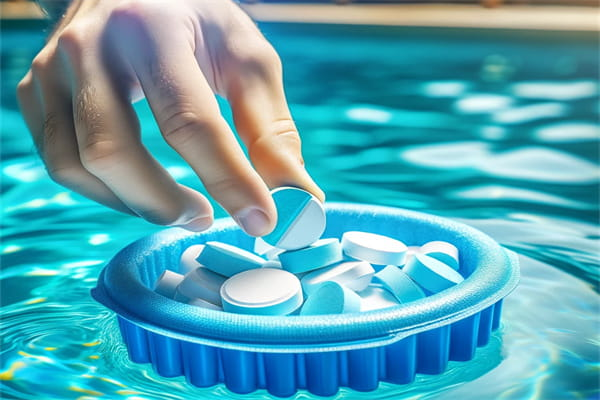Chlorine Tablets plays a crucial role in maintaining pool water quality. Many pool owners rely on chlorine for pools to keep the water clean and safe for swimmers. It effectively eliminates harmful pathogens and helps prevent algae growth, making the pool inviting. This article explores the long-term impacts of chlorine on pool water quality, including potential drawbacks and challenges. Additionally, it will discuss the best practices for chlorine use to ensure a safe and enjoyable swimming experience for everyone involved.

I. Understanding Chlorine’s Role
Chlorine tablets is a powerful disinfectant widely used in swimming pools. It effectively kills harmful bacteria and viruses that can pose health risks to swimmers. Additionally, it helps control algae growth, ensuring the water remains clear and inviting. This versatility makes the best pool chlorine an essential part of routine pool maintenance. However, while it provides immediate sanitation benefits, its effects can extend beyond just cleaning. Over time, its continuous use can lead to chemical imbalances and other long-term consequences that pool owners need to consider.
II. Short-Term Benefits
Initially, chlorine shows rapid results. When added to pool water, it reacts quickly with contaminants. This leads to cleaner and clearer water, enhancing the overall swimming experience. Many swimmers enjoy the benefits of chlorinated pools. They appreciate the reduced risk of illness and infection, which is particularly important for families and frequent swimmers. Moreover, chlorine helps maintain a balanced pH level, essential for swimmer comfort. This balance prevents skin irritation and keeps the water feeling pleasant, making it more inviting for everyone.
III. Potential Long-Term Effects
Despite its advantages, long-term chlorine use has potential downsides. Over time, chlorine can create chloramines. These compounds form when chlorine reacts with organic matter. Chloramines can lead to strong odors and eye irritation. Swimmers may find this uncomfortable, impacting their enjoyment of the pool.
Furthermore, prolonged exposure to chloramines can cause respiratory issues. Some individuals may develop sensitivities. This raises concerns for both regular swimmers and pool staff. Proper ventilation and water circulation can mitigate these effects.
IV. Chlorine and Water Chemistry
Long-term chlorine use also affects pool water chemistry. Maintaining the right balance is vital for water quality. If chlorine levels are consistently high, it can lead to other chemical imbalances. For instance, elevated chlorine levels can alter pH and alkalinity. This may create additional challenges for pool owners.
In some cases, high chlorine levels can cause skin and hair damage. Swimmers may notice dryness or irritation after frequent exposure. Therefore, it’s essential to monitor chlorine levels regularly. Pool owners should strive to maintain a balance.
V. Best Practices for Chlorine Use
To maximize the benefits of the best pool chlorine, pool owners should follow best practices. First, regularly test the water quality. Use reliable test kits to monitor chlorine levels, pH, and alkalinity. This will help prevent chemical imbalances.
Second, consider using stabilized chlorine products. These formulations provide better protection against sunlight degradation. They help maintain chlorine levels for longer periods. This reduces the frequency of chlorine addition.
Third, ensure proper water circulation. Good circulation helps distribute chlorine evenly. It also aids in the breakdown of contaminants. A well-maintained filtration system is crucial for achieving this.
Finally, schedule regular shock treatments. Shocking the pool helps remove chloramines and other impurities. This process ensures the water remains clean and safe for swimmers.

VI. Environmental Considerations
Chlorine use can also have environmental impacts. Chlorinated water can harm local ecosystems if discharged improperly. Pool owners should consider eco-friendly practices. This includes using alternative sanitizers or reducing chlorine use.
Some alternatives include saltwater systems and UV filters. These options can reduce reliance on traditional chlorine methods. They may provide a safer and more sustainable swimming experience.
VII. Conclusion
In conclusion, chlorine is essential for pool water quality. However, its long-term effects warrant careful consideration. Regular monitoring and best practices can optimize chlorine use. Pool owners should stay informed about alternatives and environmental impacts. By doing so, they can ensure a safe and enjoyable swimming experience for everyone.
Investing time and effort into proper maintenance pays off. Ultimately, this helps maintain the health of both swimmers and the pool itself. Understanding the long-term effects of chlorine allows for better decision-making. This leads to a more enjoyable swimming environment for all.

 Instant
Quote
Instant
Quote Email
Us
Email
Us